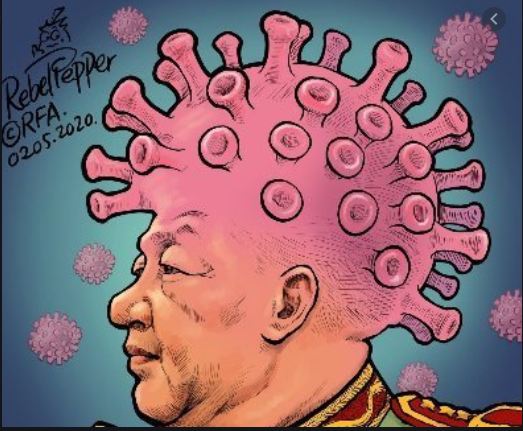Virendra Pandit
New Delhi: Despite the unprecedented global unpopularity of China, its President Xi Jinping has further pushed his country to the precipice: he has just directed his Terracotta Army, officially known as the People’s Liberation Army (PLA), to “be prepared for war”.
This week, he asked the PLA troops to “prepare for war”. Troops should “maintain a state of high alert… Put all (your) minds and energy into preparing for war,” his official mouthpiece Xinhua quoted Xi Jinping as saying.
The PLA soldiers should be “absolutely loyal, absolutely pure, and absolutely reliable”, he told them during a visit to the Marine Corps of PLA in Chaozhou City.
His call came amid China’s attempted aggression in Ladakh and current standoff since June with the Indian Army along the Line of Actual Control (LAC). The remarks also coincide with the passage of a US Navy warship through the Taiwan Strait, which China claims as its own.
Besides, Beijing also claims sovereignty over vast regions of the South China Sea, annoying Vietnam, Malaysia, the Philippines, Brunei, and Taiwan.
Xi Jinping’s call shows that China is bracing for a long haul, or “Cold Peace”, in the Himalayas, the South China Sea, and various other potential war theatres, particularly after international opprobrium over its alleged culpability on the Covid-19 pandemic and threats to all and sundry on one count or another.
This year, the Sino-American relations have further deteriorated after the coronavirus outbreak and the open US support to Taiwan, which is trying to increase its influence in the Indo-Pacific area. This week, the US also decided to appoint a human rights watchdog for violations in Tibet, irking Beijing further. China’s suppression of Xinjiang Muslims and the pro-democracy people of Hong Kong is another flash-point.
Once bitten, twice shy. Many countries have woken up to the potential Chinese threats and designs to scrap their sovereignty by different means across continents. In particular, its hegemony, expansionist designs, and threats have alarmed many a nation, including many nationalists in Pakistan, Bangladesh, and Nepal.
These Chinese designs have prompted the four major Indo-Pacific democracies–India, the US, Japan, and Australia–to formulate what is now known as the Quadrilateral Security Dialogue, or Quad, which is being billed as the predecessor of an ‘Asian NATO’ in the near future.
How unpopular China is now was proved in October. Releasing a global poll, Pew Research Center said that unfavorable views of China across the world have climbed to historic highs in many countries, with the highest in Australia.
A majority of those polled in each of the 14 advanced economies had negative views of China. But in nine of them, China’s unpopularity was at the highest Pew had recorded since it started tracking it over a decade ago in Australia, Germany, the United Kingdom, the United States, the Netherlands, Canada, Spain, Sweden, and South Korea, the report said.
Besides, at least 73 percent of those polled in these nine countries, as also in five others–Belgium, Japan, Italy, Denmark, and France–had unfavorable views of China.
The extent of China’s arrogance came out recently against France as well.
A French museum has had to postpone an exhibit about Mongol emperor Genghis Khan. It cited interference by the Chinese government, which it accuses of trying to rewrite history, according to media reports.
The Château des ducs de Bretagne history museum in the western French city of Nantes said it was putting the show about the 13th-century warrior on hold for more than three years.
The reason is that China, which is suppressing the Inner Mongolians as well, does not want them to be reminded of Genghis Khan’s great empire, and is trying to strip them of their identity, the way it has been doing in Tibet and Xinjiang.
Keeping its eyes wide shut, despite angry mobs attacking Pakistani Army soldiers at many places for protecting Chinese workers and interests, Islamabad is going ahead with handing over two strategic islands off the Sindh coast in the Arabian Sea to Beijing.
Many in Pakistan are angry over their country ‘selling off’ national interests and sovereignty to China in the garb of the upcoming China-Pakistan Economic Corridor (CPEC).
The USD 60 billion CPEC, part of Xi Jinping’s ultra-ambitious plan of the USD 200 billion Border and Road Initiative (BRI) across continents, has become albatross across many debtor nations’ neck. It may well become the Chinese equivalent of the Soviet Union’s reckless investments in a Star War-like technology development in the 1980s, to compete with the USA, which bankrupt Moscow and disintegrated the USSR within a decade.
That explains why China itself is probably heading towards disintegration.

